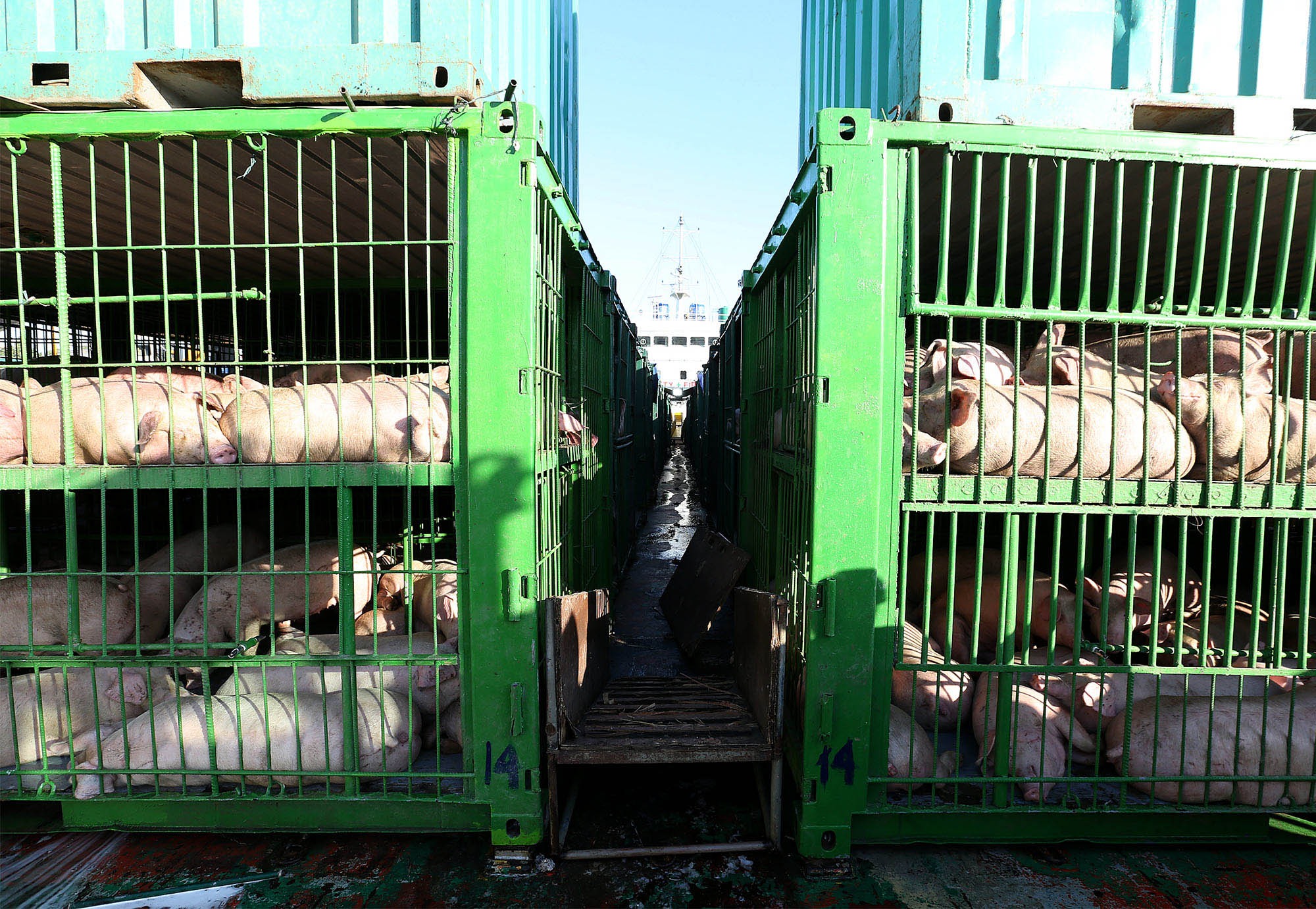Higher pork imports disappoint hog raisers

INVENTORY BOOST Live hogs from South Cotabato arrive at Vitas Port in Tondo, Manila, to augment pork supply in Metro Manila. —RICHARD A. REYES
Hundreds of thousands of small backyard hog growers, who produce 70 percent of the country’s pork supply, will sink deeper into poverty while only a handful of importers will make a killing.
This was the prediction of agricultural groups and lawmakers after President Duterte recommended that Congress increase the volume of pork that could be imported with lower tariffs in a bid to augment supply and ease the persistently high pork prices.
“It would be like giving a death sentence to our local hog raisers,” said Senate President Vicente Sotto III, who was baffled by the President’s response to the Senate’s recommendation to curb imports to keep local farmers afloat.
While senators did not oppose pork imports, Sotto noted that the Senate has passed a resolution opposing a proposed increase in the minimum access volume (MAV) of imported pork products at lower tariffs.
Senators also opposed the Department of Agriculture’s (DA) proposal to lower tariffs on pork imports because this would aggravate the pork industry’s crisis over the African swine fever that the DA had failed to stamp out.
Agricultural groups were also disappointed by the President’s recommendation.
No DA justification
“We feel like the President was not briefed about the sentiments of the industry. During the hearings, it was clear that the DA was not able to justify its recommendation [to raise the MAV and reduce the tariff rates]. Even our lawmakers agree on that,” said Rosendo So, chair of the Samahang Industriya ng Agrikultura.
So also questioned the manner in which the President’s recommendation was made.
“It looked like the timing was also strategic,” So said. “They gave the document on the eve of the adjournment of the session so that the Congress cannot do anything about it. We’re hoping to use that 15 days to turn things around.”
Under Section 6 of the rice tariffication law, the President may propose changes in the country’s MAV rules during shortages or abnormal price increases. If Congress fails to act on the recommendation, it would turn into an executive order and part of the law.
Senators question timing
Even senators questioned why the matter was forwarded to Congress when it is on a break and not holding sessions.
“They could have issued an executive order on that while we are on a break. That’s the rule,” Sotto said at an online briefing.
The one-month congressional break is due to start on Monday.
Agriculture Secretary William Dar, who proposed the pork imports and tariff cuts in the first place, declined to comment purportedly because he had not seen the document released by the Office of the President.
Another proposal of the DA was to slash the tariffs imposed on these imports. The President has yet to issue his stand on the matter.
Chester Warren Tan, president of National Federation of Hog Farmers Inc., said they supported pork importation but clarified that the volume proposed by the DA was too high.
“We are just hoping that the intent would not be to flood the market, but just to cover the ongoing shortage. Too many imports would kill the local industry,” Tan said.
But meat importer Jesus Cham, president of the Meat Importers and Traders Association, was not satisfied at the MAV increase of 350,000 metric tons spelled out in the President’s recommendation.
Cham claimed that the President’s recommendation was the “right move,” but that does not assure that pork prices would go down to the suggested retail price of P270 to P300 a kilogram.
“We need the tariff reduction to achieve that and so we are hoping to hear something about the tariff in the coming week so consumers can benefit from it as soon as possible,” he said.
